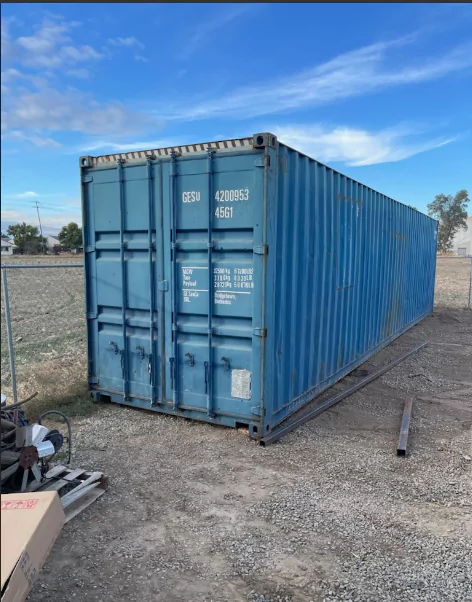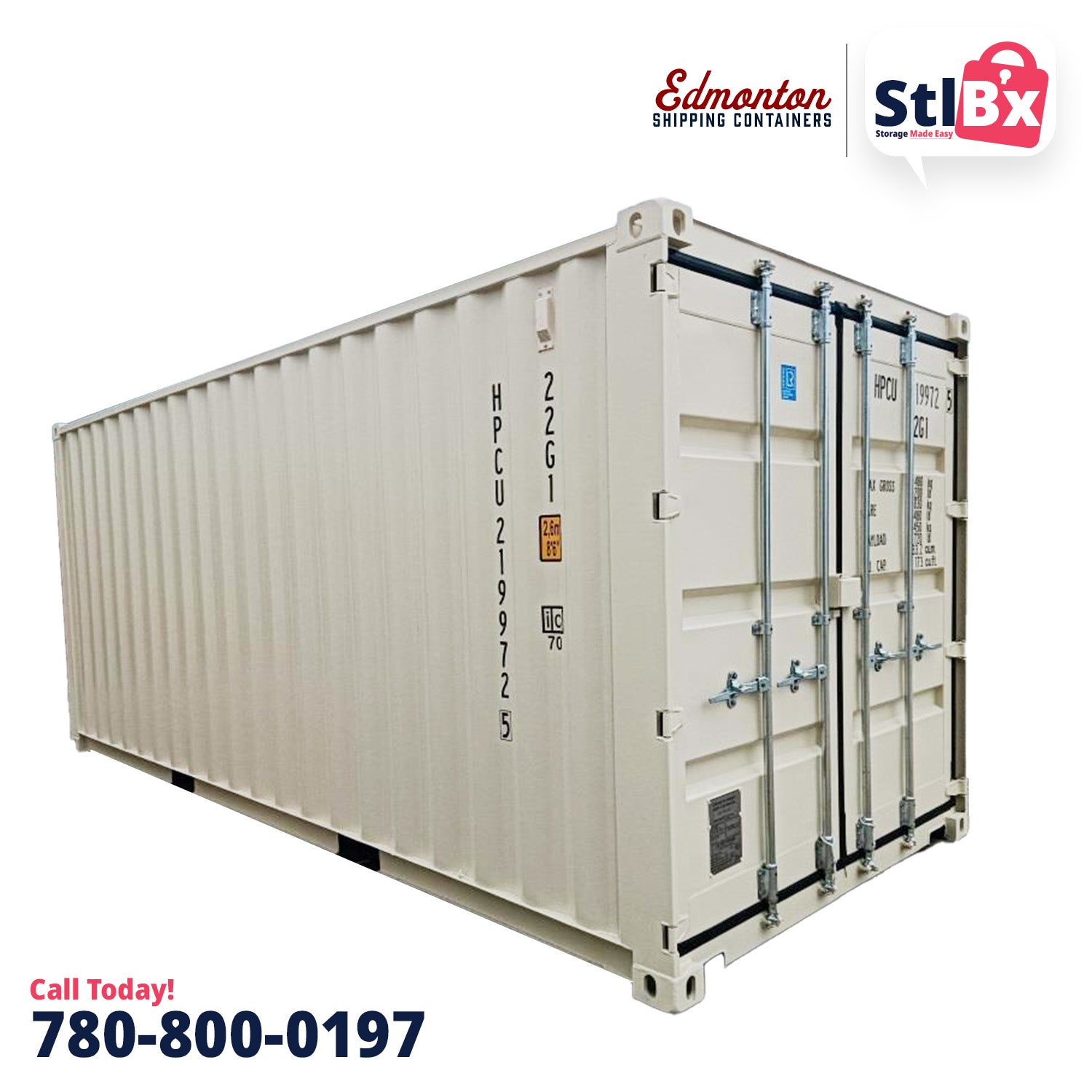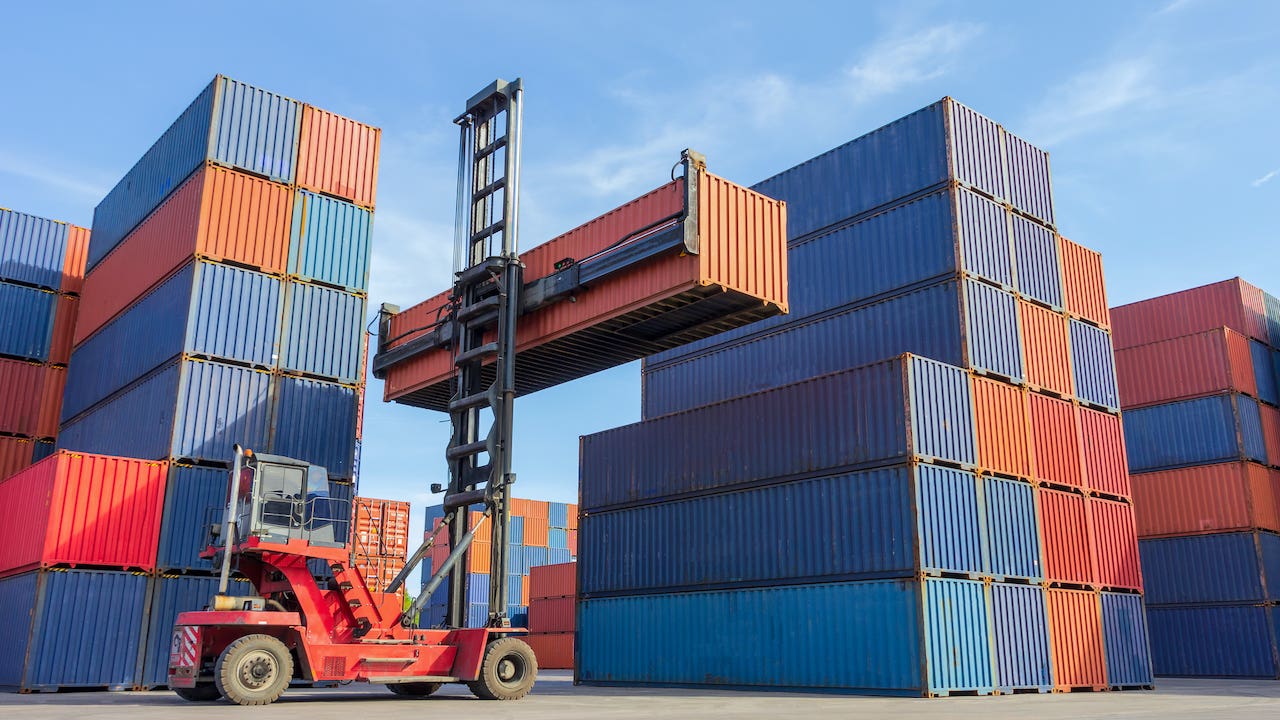The pros and cons of shipping container storage
Every little thing You Required to Know Concerning Shipping Containers and Their Practical Applications
Shipping containers have actually evolved from mere devices for transport to versatile frameworks with many useful applications. Their durable style and standard sizing make them ideal for a range of uses beyond delivery. From ingenious housing remedies to sustainable farming, their versatility is notable. Yet, the possibilities do not end there. Exploring their numerous features exposes unexpected understandings into contemporary challenges and imaginative services. What other roles could these containers play in today's globe?
The Design and Framework of Shipping Containers

Inside, containers are created to make the most of room, typically including wood or steel floor covering that can sustain substantial weight. Air flow systems may be integrated to stop moisture buildup, which is vital for sensitive cargo. Furthermore, reinforced corners permit very easy handling by forklifts and cranes, promoting seamless loading and dumping. This thoughtful design and framework add to the containers' adaptability throughout different shipping and storage applications.
Benefits of Using Shipping Containers
While numerous transport approaches have their advantages, the usage of delivery containers sticks out due to their unequaled flexibility and efficiency. Shipping containers offer a standard size, making them simple to deliver and stack across numerous modes of transport, consisting of ships, trucks, and trains. This standardization minimizes loading and discharging times, thereby enhancing overall performance.
Shipping containers are built from sturdy materials, supplying robust security for goods during transit. They are secure and weather-resistant, reducing the threat of damage from ecological aspects or burglary. Additionally, the modular style of shipping containers permits very easy personalization, allowing companies to adapt them for various purposes, such as storage or mobile offices.
Their mobility and cost-effectiveness make shipping containers an appealing option for companies looking to improve logistics and supply chain operations. These benefits add to the expanding popularity of delivery containers in numerous industries.
Innovative Housing Solutions With Shipping Containers
Cutting-edge housing options have arised as an amazing application of shipping containers, leveraging their integral staminas for household usage. These flexible structures provide a sustainable choice to traditional building materials, typically at a fraction of the cost. Architects and designers have actually transformed containers into stylish, functional homes, catering to varied way of lives and choices.

Shipping containers are ecologically pleasant, promoting recycling and decreasing waste. Several tasks focus on energy effectiveness, integrating green roofings and solar panels. As urbanization boosts, these ingenious real estate options present a sensible feedback to housing scarcities while cultivating a special building visual.
Shipping Containers in Retail and Pop-Up Shops
An expanding variety of sellers are turning to shipping containers as a vibrant remedy for pop-up stores and retail areas. These flexible structures offer an affordable choice to typical storefronts, allowing businesses to produce unique, eye-catching environments that bring in customers. Their modular layout enables easy transport and installation, making them perfect for momentary or seasonal retail areas.
Sellers can customize delivery containers to reflect their brand name identification, transforming them into aesthetically appealing shops that stand apart in jampacked industries. The small nature of containers likewise encourages effective use area, permitting for innovative formats that optimize consumer circulation and involvement. Additionally, delivering containers can be situated in unconventional locations, such as vacant great deals or city parks, enhancing access and foot traffic.
As the retail landscape progresses, shipping containers give a versatile and cutting-edge remedy that satisfies the needs of contemporary customers while enhancing the buying experience.
Sustainable Farming Practices Using Shipping Containers
Lasting farming practices increasingly incorporate delivery containers as innovative services for farming - sea can for sale. These container farms use hydroponics to make the most of space and resource effectiveness, using a cost-efficient approach to food production. By transforming shipping containers right into farming centers, farmers can attend to food protection and ecological worries all at once
Container Farming Conveniences
While typical farming deals with difficulties such as land deficiency and climate change, container farming offers a practical option that maximizes space and sources. This innovative technique enables year-round plant production in regulated atmospheres, decreasing reliance on climate condition. Container farms use less water than traditional farming, promoting sustainability and preservation. They can be developed in city locations, bringing fresh fruit and vegetables closer to consumers and decreasing transport exhausts. Furthermore, the modular nature of delivery containers allows scalability, allowing farmers to adjust procedures based on demand. Container farming additionally lessens pesticide use by developing a confined ecological community, ultimately enhancing food safety and security. As urban populations grow, container farming arises as a useful solution to satisfy the boosting demand for neighborhood, lasting food resources.
Hydroponics in Containers
Hydroponics, which enables plants to expand without dirt by utilizing nutrient-rich water, grows within the boundaries of shipping containers, making it a perfect method for urban farming. These containers develop a regulated environment that enhances light, humidity, and temperature, allowing year-round cultivation. With limited space in metropolitan locations, delivering containers use a scalable service for growing fresh produce. Hydroponic systems within containers can include different strategies, such as nutrient film method (NFT) and deep water society (DWC), which take full advantage of yield while lessening water usage. This ingenious method not only boosts food safety however likewise reduces the carbon footprint connected with standard farming approaches. Hydroponics in containers represents a forward-thinking remedy for lasting urban food production.
Economical Farming Solutions
As food production deals with boosting obstacles because of environment modification and urbanization, delivering go to this web-site containers become a cost-efficient solution for farming. These flexible frameworks can be repurposed for numerous lasting farming methods, such as hydroponics and vertical farming. By using regulated atmospheres within containers, farmers can maximize growth cycles and reduce source usage, including water and plant foods. Furthermore, shipping containers can be tactically put in metropolitan areas, reducing transport expenses and improving click to read more access to fresh produce. Their modular nature permits for scalability, allowing farmers to expand procedures as demand expands. Repurposing containers adds to waste decrease, aligning with green agricultural efforts. Generally, shipping containers existing cutting-edge chances for effective and lasting food production.
Emergency and Disaster Relief Applications of Shipping Containers

Organizations frequently make use of shipping containers to develop mobile centers or field health centers, ensuring that clinical care gets to those in requirement. In addition, they can be changed right into command centers for collaborating rescue operations, consequently improving business effectiveness during situations.
Moreover, containers can be customized to store crucial products such as water, food, and apparel, guarding products up until they are distributed. Their flexibility allows them to be conveniently delivered to numerous locations, guaranteeing that help shows up where it is most quickly required. Generally, shipping containers play an essential function in enhancing the effectiveness of catastrophe relief campaigns worldwide.
Frequently Asked Questions
How Are Shipping Containers Transported From One Place to Another?
Shipping containers are delivered through trucks, trains, and ships, utilizing cranes for filling and dumping. This multi-modal transportation system ensures effective activity throughout land and sea, connecting worldwide supply chains and assisting in global profession.
What Is the Typical Life Expectancy of a Delivery Container?
The ordinary life expectancy of a shipping container normally ranges from 10 to 25 years, relying on upkeep, use, and environmental aspects. Correct treatment can extend their use, while forget might cause degeneration and damage.
Can Shipping Containers Be Changed for Various Uses?
Yes, shipping containers can be changed for different usages. They function as homes, offices, pop-up stores, browse around this site and storage space units. Their flexibility permits for creative adjustments, making them ideal for a broad range of applications.
Are Shipping Containers Eco-friendly?
Shipping containers can be eco friendly, as they advertise repurposing and reusing. Their longevity minimizes waste, while their use in different housing and businesses decreases the requirement for new products, adding to sustainable techniques.
How Do I Choose the Right Size Shipping Container?
To select the right dimension delivery container, one should analyze storage space demands, take into consideration the designated usage, and evaluate space schedule - Shipping Containers for Sale. Common dimensions include 20-foot and 40-foot containers, each serving various storage and transportation requirements efficiently
Cutting-edge housing services have actually arised as an interesting application of delivery containers, leveraging their fundamental staminas for domestic usage. The versatility of shipping containers enables for creative designs, from single-unit dwellings to complicated multi-container setups. Lasting farming methods increasingly include delivery containers as innovative remedies for farming. Furthermore, the modular nature of shipping containers enables scalability, permitting farmers to adjust procedures based on demand. Hydroponics, which allows plants to expand without dirt by utilizing nutrient-rich water, thrives within the boundaries of delivery containers, making it a suitable approach for city farming.